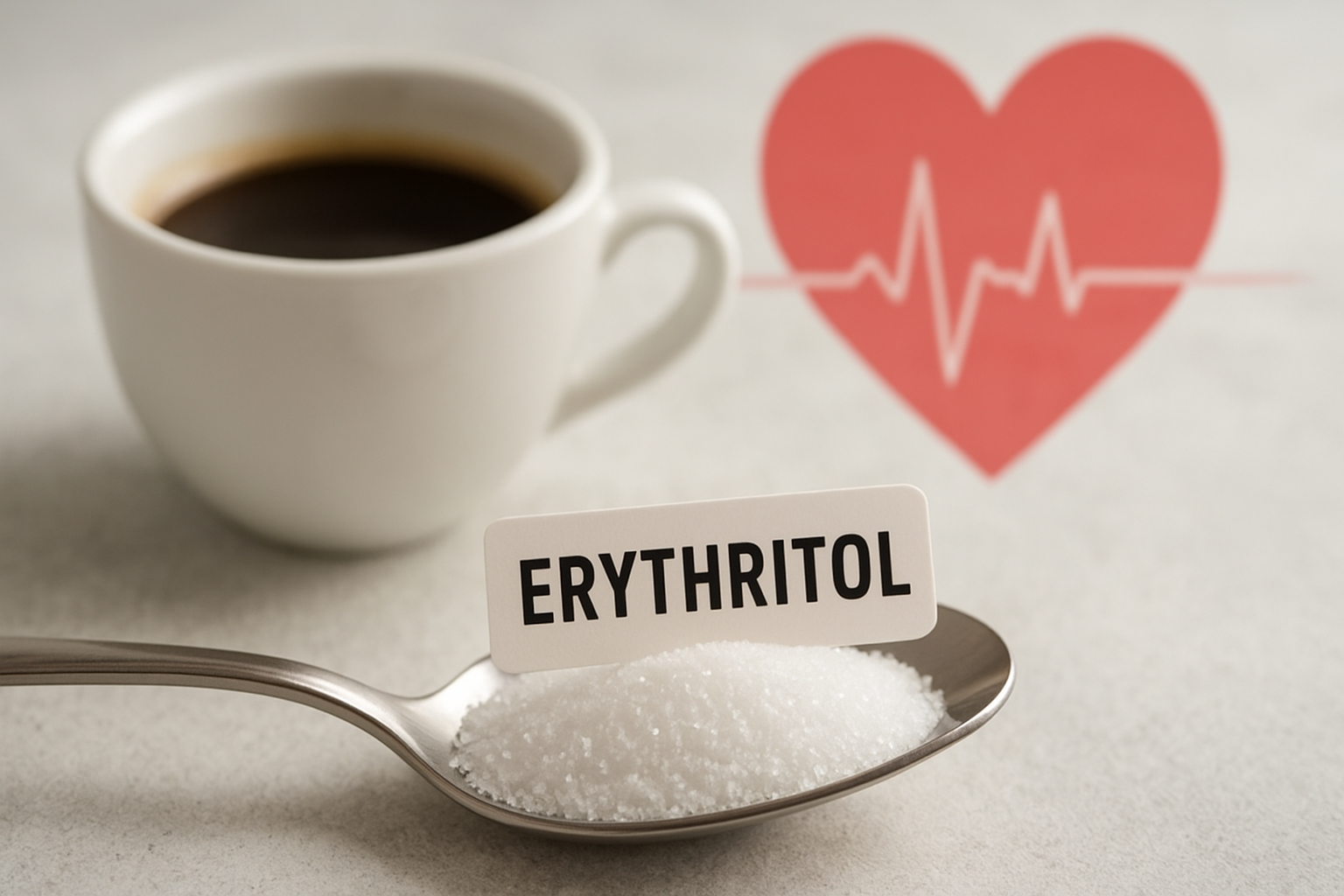Popular Sugar Substitute Erythritol Tied to Higher Risk of Stroke
A lot of people are using sugar substitutes these days to help them lose weight and keep their blood sugar levels stable. Erythritol is a sugar alcohol that is found in many “zero-sugar” or “keto-friendly” products. It is one of the most popular options. It tastes sweet but has very few calories, which is why it’s used in protein bars, energy drinks, baked goods, and even sweeteners like Truvia.
A new scientific study, on the other hand, has raised questions about the safety of erythritol. Researchers discovered that people who had more erythritol in their blood were more likely to have a heart attack or stroke. This has made both health experts and regular people think twice about how safe “sugar-free” really is.
What the Study Found About Erythritol and the Risk of Stroke
The study, which was published in a well-known medical journal, looked at several thousand people in the U.S. and Europe. Researchers checked their blood for erythritol and kept an eye on their heart health over time. They found a clear connection: people with higher levels of erythritol were more likely to have serious heart problems, like a stroke or heart attack.
The researchers also did lab tests to learn more. They discovered that erythritol increased the propensity of blood platelets to coagulate. One of the main reasons people have strokes and heart attacks is because blood clots block blood flow to important organs.
The most worrying thing is that the people in the study didn’t eat a lot of erythritol. The levels were low enough that they could have come from eating and drinking sugar-free foods and drinks on a regular basis. This means that even a small amount could be enough to cause worry.
What This Means for People Who Buy Things Every Day
People with diabetes or who are on low-carb diets have been told for a long time that erythritol is a safe alternative to sugar. It doesn’t raise blood sugar levels, and it has fewer calories than regular sugar. But this new evidence makes us think about how these substitutes affect our blood vessels and heart, not just how many calories they have.
Experts in health are not telling people to panic or get rid of all sugar-free foods. More research is needed to find out if erythritol really causes strokes or if it just makes them more likely. But this study is a strong reminder that “natural” or “low-calorie” doesn’t always mean healthy. If you want to cut back on sugar, you could try using small amounts of honey, fruit, or just retraining your taste buds to like less sweetness. It’s also important to read food labels because erythritol is often called “sugar alcohols” or “natural sweeteners.”
The new study on erythritol has started an important discussion about how safe sugar substitutes are in the long run. They might help you eat fewer calories and keep your blood sugar in check, but they could also hurt your heart and brain health in ways you didn’t expect. For now, it’s best to use these sweeteners sparingly and eat whole, natural foods that are sweet.




